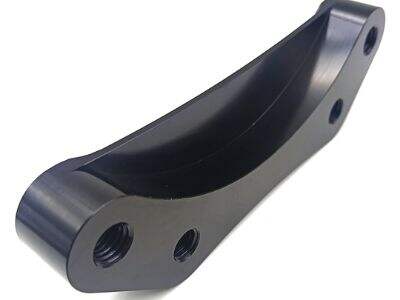Schweißer finden es oft schwierig, die Schweißzertifizierungsstandards in verschiedenen Ländern zu verstehen. Jedes Land hat seine eigenen Vorschriften zur Zertifizierung des Schweißens. In diesem Artikel werden wir die globalen Regeln für die Schweißzertifizierung diskutieren, die Qualitätsstandards analysieren, Ähnlichkeiten und Unterschiede in diesen Standards identifizieren und lernen, wie man sich an die Vorschriften in verschiedenen Ländern hält.
Schweißer, die Jobs in verschiedenen Ländern suchen möchten, müssen die Zertifizierungsrichtlinien verstehen. Zum Beispiel erstellt die AWS (American Welding Society) die Regeln für Schweißzertifikate in den USA. Um zertifiziert zu werden, müssen Schweißer Tests bestehen und bestimmte Richtlinien befolgen. In Europa werden die Zertifizierungsregeln von dem Internationalen Institut für Schweißen (IIW) festgelegt. Neben den Standards des IIW kann jedes europäische Land auch zusätzliche Vorschriften haben.
Regeln zur Schweißzertifizierung in anderen Ländern im Vergleich zu den eigenen. Um effizientere Praktiken und Wissen zu erlernen, haben Schweißer die Möglichkeit, andere Vorschriften anzusehen, die sich von denen ihrer internationalen Kollegen unterscheiden. Während einige Vorschriften möglicherweise stärker auf Qualitätskontrolle und Schweißverifizierungstechniken fokussiert sind, konzentrieren sich andere mehr auf die Verwendung der richtigen Techniken und Werkzeuge.
Das Wissen darüber, was bei den Zertifizierungsregeln für das Schweißen üblich ist und was sich unterscheidet, kann Schweißern helfen zu wissen, was sie benötigen, um in einem anderen Land zertifiziert zu werden. Einige typische Anforderungen, die viele Länder stellen, umfassen das Bestehen schriftlicher Prüfungen, das Nachweisen praktischer Fähigkeiten und das Absolvieren einer bestimmten Anzahl von Schweißstunden. Diese Anforderungen können jedoch von Land zu Land sehr unterschiedlich aussehen.
Schweißer, die an verschiedenen Orten arbeiten, haben viel Arbeit, um den Zertifizierungsanforderungen verschiedener Länder gerecht zu werden. Schweißer cnc Blechmetallumformung müssen auf dem neuesten Stand bezüglich der Aktualisierungen der Vorschriften für Zertifikate bleiben und sicherstellen, dass sie mit allen Anforderungen konform sind. Im Bilde zu sein kann Schweißer vor Verzögerungen oder Problemen beim Erhalten von Zertifikaten schützen.
Zusammengefasst: präzise Blechmetallprodukte internationale Schweißzertifizierungsstandards spielen eine entscheidende Rolle dabei, sicherzustellen, dass Schweißer die notwendigen Fähigkeiten besitzen, um ihre Arbeit sicher auszuführen. Durch die Identifizierung von Regeln und Vorschriften für die Schweißzertifizierung weltweit, den Vergleich der Qualitätsstandards, das Auffinden von Übereinstimmungen und Unterschieden in den Regelungen sowie das Erlernen dessen, wie man sich an jedem der individuellen Standards zertifizieren lässt, können Schweißer nicht nur ihren Zertifizierungsprozess verbessern, sondern auch ihre Karrieren vorantreiben. Yaopeng ist darauf bedacht, Schweißern bei der Erfüllung ihrer internationalen Zertifizierungsanforderungen beizustehen und ihre Schweißkarrieren zu fördern.

 EN
EN
 AR
AR
 HR
HR
 CS
CS
 DA
DA
 NL
NL
 FI
FI
 FR
FR
 DE
DE
 EL
EL
 IT
IT
 JA
JA
 KO
KO
 NO
NO
 PL
PL
 PT
PT
 RO
RO
 RU
RU
 ES
ES
 SV
SV
 ID
ID
 LT
LT
 SK
SK
 UK
UK
 VI
VI
 HU
HU
 TH
TH
 TR
TR
 MS
MS
 GA
GA
 CY
CY
 IS
IS

